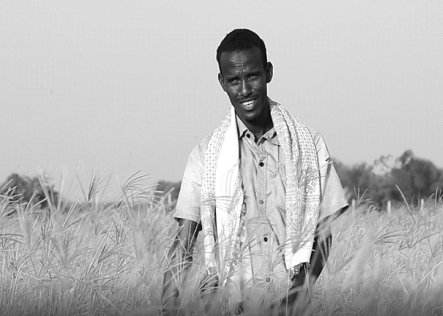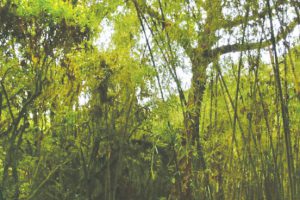
A recent study led by the International Center for Biosaline Agriculture (ICBA) and funded by the International Fund for Agricultural Development (IFAD), and the European Union (EU) has shown that 80% of the irrigated areas in Ethiopia are affected by soil salinity. The production losses in these areas are ranging from 10-80% contingent of the soil salinity levels. Increasing salinity can cause significant damage to crop yields, increase poverty, and affect the livelihood of pastoral and smallholder farmers living in the marginal areas of Ethiopia.
Many farmers have lost hope and abandoned their farmlands resulting in low to zero farm productivity, which consequently shrinks their household income. It leads to increased food insecurity, landlessness, more unemployment, malnutrition, and health-related issues, especially in women and children.
Salinity and low agricultural productivity have also forced male members of the household to migrate to cities in search of off-farm jobs, causing many social problems.
A 28 year’s old young farmer Mohammed Musa in Amibara district of the Afar Regional state -Ethiopia, shares his experiences on how the soil salinity affects his district. “I grew up in this area, and my families used to produce Maize and some export crops such as cotton, citrus fruits, onion, and vegetables through irrigation. They used to produce up to 150 quintals of onion from a small plot of land. However, currently, they could not get even 40 quintals from the same land due to the increasing soil salinity problem.”
The RAMSAP project has been pursuing in the contribution of poverty reduction through the introduction and promotion of integrated crop-livestock systems, improved irrigation, and crop management practices. All are biological methods to mitigate the problems. Four types of grasses (Rhodes grass, Sesbania, Panicum, Cinchrus) and different varieties of six soil tolerant crops such as Barely, Sorghum, Quinoa, cowpea, Lablab, Pearl Millet have so far been introduced to the farmers. These crops have germinated very well in the salt-affected areas and have given good yields. Furthermore, it helped in the soil improvements.
“Before ICBA interventions, whatever we planted, it was not germinated, or the yield was inferior. I planted onion in my plot and harvested only 35 quintals. After the adoption of ICBA technology, planted the same crop in the same plot again and gained 80 quintals.” said Mohammed Musa.
All the farmers engaged in the project experiencing a similar situation. Now, they started to plant major crops, fodder, and generating more income. In general, ICBA through IFAD and EU funding has ignited the flame of hopes for rural pastoralist communities in salt-affected areas by enhancing stable crops and fodder production, while rehabilitating their lands. Thousand fo farmers from five regional States (Afar, Amhara, Oromia, Tigray, and Somali) of Ethiopia are directly benefiting from this project.
Dr. Asad Qureshi, ICBA’s RAMSAP Project Leader, says that, in addition to the restoration of soil salinity, the project has contributed significantly to improve forage varieties to feed & increase livestock productivity in lowland areas of the country. The seeds of the recommended varieties of the selected crops are now multiplied for free distribution to farmers in all five regions. The project is also organizing training and demonstration plots to educate farmers about these crops.
International Center for Biosaline Agriculture (ICBA) is an International, non-profit agricultural research center. Head Quarter in Dubai, UAE, works towards achieving food, nutrition & water security, in saline & marginal environments around the world. ICBA has developed a variety of methods of Bioremediation to bring salt-affected lands back into agricultural use.
The Ethiopian Herald June 27, 2020
BY ZELALEM GIRMA




